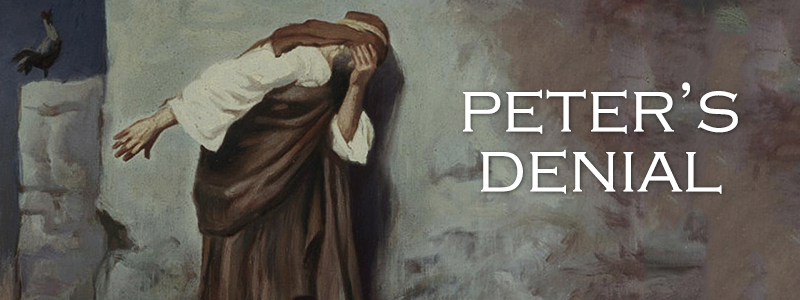Can a statement that seems so obvious from the outset be so misinterpreted? Let’s shed some light and provide exegetical evidence as to why Jesus asked Peter “Do You Love Me?” 3 times!
“So when they had eaten breakfast, Jesus said to Simon Peter, “Simon, son of Jonah, do you love Me more than these?” He said to Him, “Yes, Lord; You know that I love You.” He said to him, “Feed My lambs.” 16 He said to him again a second time, “Simon, son of Jonah, do you love Me?” He said to Him, “Yes, Lord; You know that I love You.” He said to him, “Tend My sheep.” 17 He said to him the third time, “Simon, son of Jonah, do you love Me?” Peter was grieved because He said to him the third time, “Do you love Me?” And he said to Him, “Lord, You know all things; You know that I love You.” Jesus said to him, “Feed My sheep.” – John 21:15-17

Jesus wasn’t asking Peter if he loves Him due to the fact that He didn’t know the answer. Peter was accurate in claiming, “Lord, You know all things; You know that I love You” (John 21:17). Jesus was doing it to have Peter face his transgressions, which had to be addressed and also gotten rid of before he can be commissioned to tend to the Lord’s sheep.
And why did Jesus ask Peter this 3 times? Because Peter denied Jesus 3 times
But having said that, why the need to ask someone the same question 3 times? Isn’t it long-winded as well as redundant? Our exegetical evidence for why Jesus asked Peter this question 3 times will show that this is absolutely not the case!
What are His three questions to Peter?
“Do you love Me more than these?” (John 21:15)
“Do you love Me?” (John 21:16) and (John 21:17)
Who are the “these” in John 21:15? They are the other disciples with whom they had already just “eaten breakfast.”
Why would Jesus ask if Peter loves Him more than them? This is due to the fact that prior to His crucifixion, when Jesus had said that the disciples will be scattered, Peter had declared in effect that he loved Jesus more than the other disciples did:
“Then Jesus said to them, “All of you will be made to stumble because of Me this night, for it is written: ‘ I will strike the Shepherd, And the sheep of the flock will be scattered.’ But after I have been raised, I will go before you to Galilee.” Peter answered and said to Him, “Even if all are made to stumble because of You, I will never be made to stumble” (Matthew 26:31-33).

Although the word “love” reads the exact same in English, they are actually diverse in the original Greek. While English has only one word for “love,” there are plenty of in Greek. There is:
1 eros for erotic love
2 philos for friendship
3 storge for affection from familiarity among family members or others brought together not by their choice
4 philostorgos, which combines philos and storage
5 philadelphia for brotherly love.
6 agape, the sacrifial, unconditional love.
In the passage above, Jesus uses the verb form of agape in the first two of His three questions and also the verb form of philos in the third, while Peter responds with the verb form of philos all 3 times.
So what is really happening here?
Jesus at first asks Peter if he loves Him sacrificially “more than these” (John 21:15). Instead of addressing the comparison, Peter respond by professing his love for Jesus as a friend; after betraying Jesus, there was no way he could claim anything more than that.
Jesus then drops the comparison and asks Peter if he loves Him sacrificially. Peter sticks to his claim of friendly love. With His third question, Jesus drops the level of love down to Peter’s, and there’s a match.
Jesus will start dealing with us with whatever level of love we have for Him, but He does require humility, which is what Peter displayed in John 21:15 -17, as opposed to his prideful declaration in Matthew 26:31 -33 above.